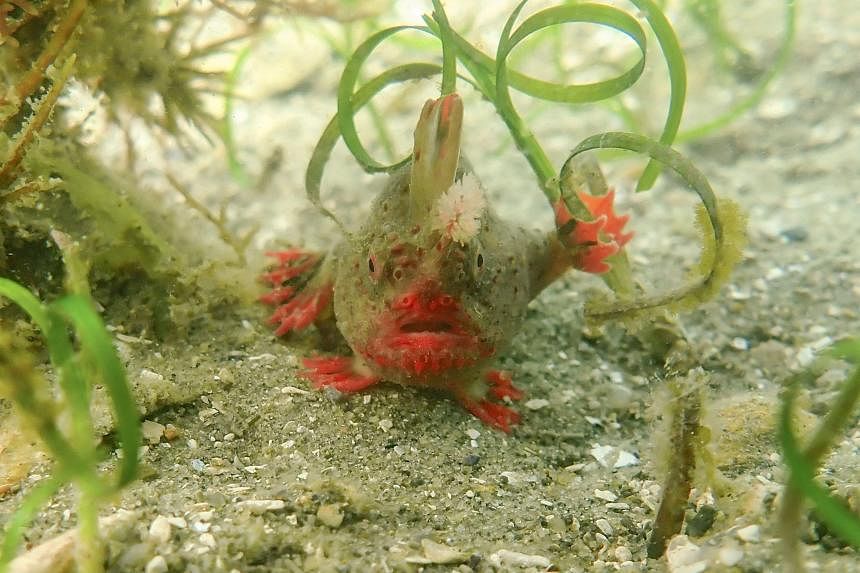SYDNEY - Scientists have collected 25 extremely rare red handfish from the ocean off Australia, hoping to protect the struggling species from warming seas, human-caused habitat changes and ravenous urchins.
Only about 100 red handfish – which have the appearance of a crimson and brown goldfish with stubby arms and webbed hands – are left in the wild, living in a small section of reef off south-east Tasmania.
About 8cm long, they “walk” along the sea floor on their pectoral and pelvic fins rather than swim.
But overgrazing urchins, run-off from urban areas, disturbances from boats and rising sea temperatures have resulted in “severe habitat loss and degradation”, according to the University of Tasmania’s Institute for Marine and Antarctic Studies.
Scientists at the institute recently made the difficult and risky decision to take dozens of the fish out of the wild for safekeeping.
“This summer has already well exceeded previous temperature maximums,” said marine scientist Jemina Stuart-Smith.
“We can only assume that this additional stressor will impact the already fragile population,” she said.
On Jan 31, scientists said the 25 specimens were doing well in their temporary aquarium homes and were being closely monitored for stress or ill health.
“We have highly experienced staff looking after the fish seven days a week, and a 24-hour call-out roster,” said the institute’s researcher, Dr Andrew Trotter.
“We believe they are quite safe with us – but there is certainly a feeling of heightened responsibility among our team, given how small the wild population is.”
Dr Trotter and his colleagues are hoping to return the fish to their natural habitat when temperatures drop with the onset of the austral winter in June.
Sea temperatures off Australia have been increasing steadily since records began at the beginning of the 1900s.
Scientists say the change is being fuelled by the emission of carbon dioxide and other greenhouse gases into the atmosphere – much of it from burning fossil fuels. AFP



